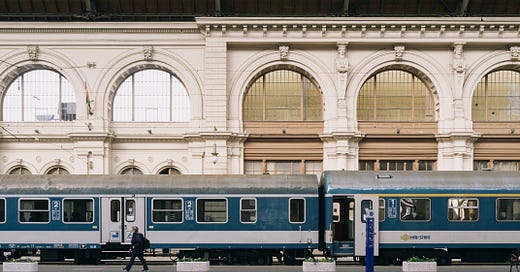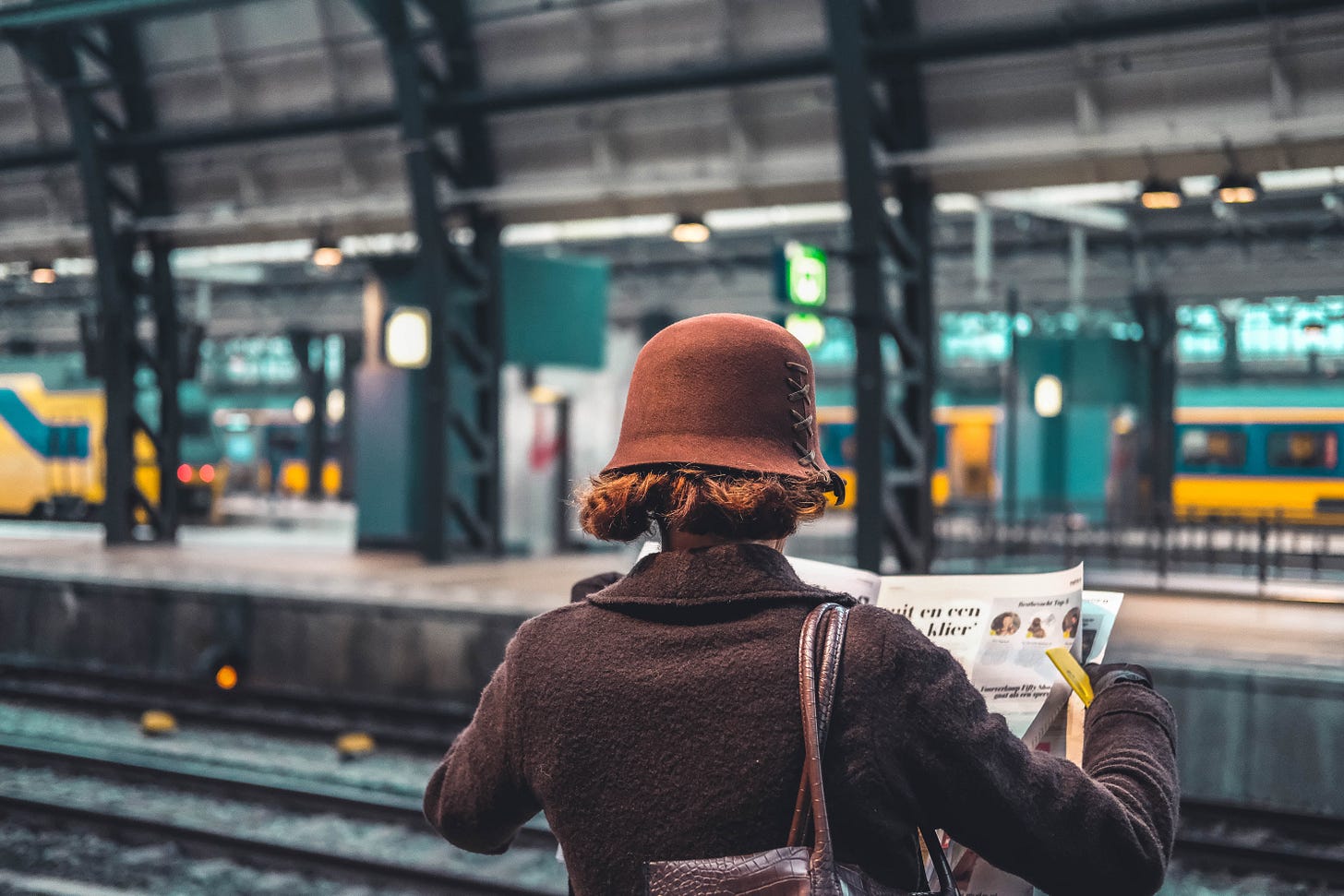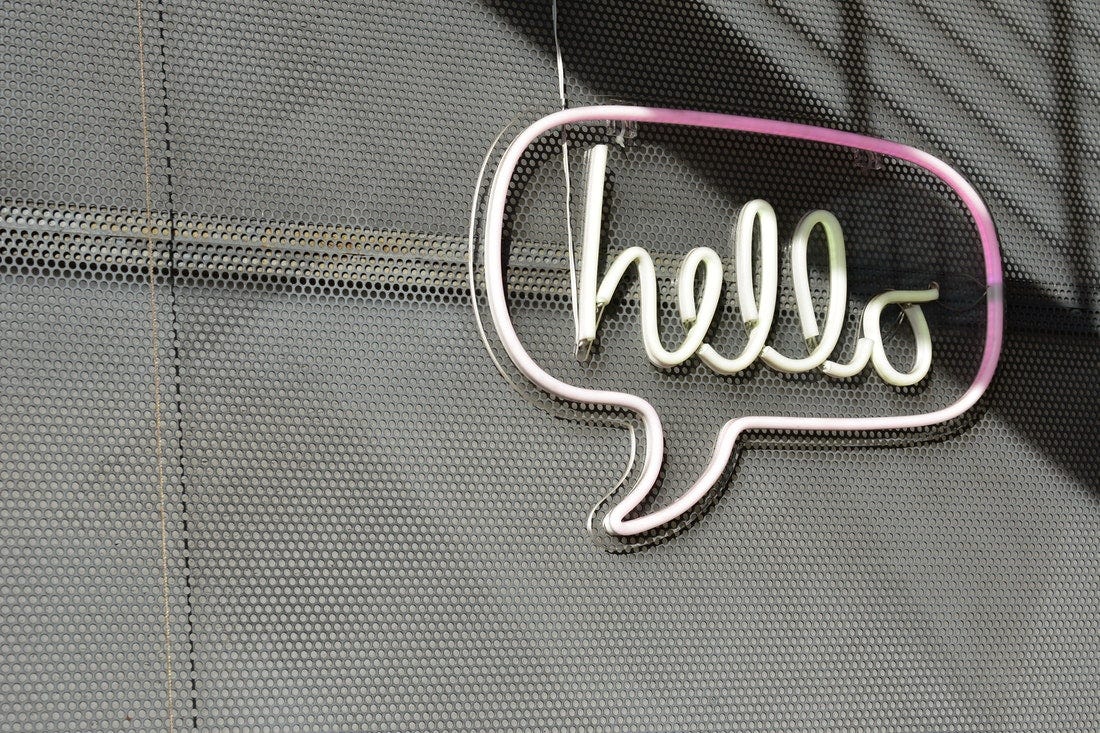#6 WHY PUBLIC TRANSPORT
Why we're focused on transport, who's doing what about harassment + more updates on our latest goings-on.
Welcome to Visible Platform's newsletter, The Platform.
This newsletter was created as we thought it was important to keep you updated on our journey and share resources to help you recognise, cope with and heal from incidents of public harassment.
If you like what we’re doing, subscribe and share with your friends 📣
February Reflections:
This newsletter’s been ready to go since the weekend but a late Sunday night identity crisis made us scrap it and rewrite something that focused on the lingering impact that war has on women and some facts to back it up.
Then, we scrapped that as well.
You know what’s going on in the world. We know you know what’s going on in the world. We hope you read our newsletters because you’re interested in the subject, enjoy our takes, or want to stay up-to-date on our developments. So we’ll stick to that as we could all use a bit of predictability right now. Please enjoy our OG newsletter.
-
Visible Platform is 2 years old this month and we’re feeling all sorts of reflective.✨ We had never intended to get involved in transport but now, well, we kind of love it.
One thing we’re often asked is if we’ve ever considered moving our mission beyond public transport:
“Harassment happens everywhere, why are you just focusing on this?”.
Of course we know that harassment happens everywhere, but the honest answer is that we don’t have any plans to move beyond public transport. Public transport is pretty interesting- it’s totally varied depending on where you are, yet it effects pretty much everyone at some point in their lives.
People almost always take public transport with a specific purpose- usually to get to their desired location. It will often be your first encounter of public life, the first thing you take control of, and the first thing you try to navigate. For children and teenagers it may be the first act of independence they experience, getting the bus to school by themselves, or the train with their friends at the weekends. It can set your mood or impact your entire day.
The irony is that the better a transport system is, the less people notice it. This is essentially what we want for all women, to just go about their day not noticing that their trains are on time, that they’re safe in the carriage, or that there’s well lit and accessible stations. We want them to feel like public life is open to them, that their needs were considered, and that their experiences were accounted for.
Because let us tell you when public life is unwelcoming, women notice it. We notice poor lighting, we notice a lack of staff, we notice the sense of isolation, we notice fear, and we notice opportunities for danger.
At Visible Platform we believe that fair, safe, and affordable access to well maintained public transport is one of the first steps in equal opportunities. Equal respect in public life means not having systems stacked against you the second you step out of the house. Transport purpose, routes, and function were traditionally designed with a default male in mind, so we’ll stay in this space until we truly believe the odds are even.
Visible Platform
Platform Updates:
👮♀️👮 Do women trust the police? We looked at some recent data on the issue and made some recommendations to police forces across the country on how to improve.
Bye Liv! 👋 Our co-founder Olivia Wasson is stepping back from her role at Visible Platform this month to focus on a new career direction. We will miss her terribly but wish her all the luck and know she’s going to kill it wherever she goes! 💃
⚖️ The Crown Prosecution Service: What happens when you report an incident. Not sure what exactly happens if a case goes to court? We’ve got you covered with our latest resource👩⚖️
Does harassment happen everywhere?
So whilst we're focused on public transport, who’s doing what for all the other forms of harassment and violence against women out there?
Well for starters, let us just tell you that this behaviour happens everywhere.
In 2021 an investigation by UN Women UK found that 97% of women aged 18-24 have been sexually harassed, with a further 96% not reporting those situations because of the belief that it would not change anything.
It’s sobering to discover that women and girls are affected in all walks of life, from school to public office. It’s also important to remember that the most dangerous place for a woman is in her own home, and that a domestic setting doesn’t mean harassment or violence should be “other-ed”.
Our Streets Now are working to criminalise Public Sexual Harassment. Currently you could get fined for dropping chewing gum on the ground, but not saying sexually explicit things to a girl in school uniform. That’s messed up and highlights one of the many ways our experiences are not being accounted for. Stop Street Harassment NI is also campaigning for similar legislative change in Northern Ireland and both campaigns are also focused on shifting societal attitudes and calling out the normalisation of this behaviour.
In public life women of colour not only experience higher rates of sexual harassment, but often have it coupled with racist harassment and language. Black girls have also be shown to be sexualised from a younger age than their white peers, meaning they are less likely to be seen as “victims” of experiences and more likely to be seen as responsible. London Black Women’s Project are working to address the disproportional dismissal of Black, Asian and minority ethnic women’s cases in the justice system and challenge any notion that black girls deserve less protection. They also support migrant women who may have a lack of access to resources which would help them seek justice for sexual harassment and abuse.
One of the areas where women are most protected from sexual harassment by the law is in the workplace, but this doesn’t mean harassment and bullying aren’t still rife. Speak Out Revolution are working to cancel the culture of silence around these issues. They’re campaigning against the use of Non-Disclosure Agreements to silence victims, and have created a Speak Out dashboard to increase transparency in workplaces.
In schools and universities, Everyone’s Invited is collecting testimonies on all forms of harassment and violence. School girls are being upskirted and groped by male pupils, and their teachers are telling them that it’s just boy’s behaviour. University students are being spiked or having their intimate photos shared among sport teams, and the university claims it is nothing to do with them. This needs to change. Due to the stories this campaign has gathered, the Children’s Commissioner has published their Interim findings on the Government’s commission on online peer-on-peer abuse and a number of universities and schools have come forward to better develop their strategies for ending violence against women and girls.
So, what can you do about harassment as an individual?
⚖️ Don’t trivialise it. Harassment is the by-product of a patriarchal society that devalues women due to their femininity, and acts as a form of hegemonic masculinity to reinforce the superiority of men. If somebody shares with you an incident of harassment, do not downplay it or imply they should be grateful it was “minor”. Recognise the message intended by the behaviour (you are an object), recognise any problematics ways we have been taught about it (“it’s a compliment”), and remember that harassment is a real form of violence against women and girls.
🗣 Talk about it. Teach your daughters and your sons what it is, why it is wrong, and recognise the feelings that may arise from it. A large proportion of women will experience their first incident of harassment in their adolescent years, sometimes even younger. These situations are uncomfortable, scary and concerning, but often, even at such a young age, we have been taught to internalise these events and not to share them publicly, even with our parents.
📚 Push for education. Boys who harass in adolescence are often doing so as a form of gender performance. They mimic their older peers or ways they believe that they should act. They do so at the expense of women and girls, preferring the approval of the boys over behaving appropriately. Change will not happen by encouraging girls to navigate life differently, it will only happen when we hold men and boys accountable. If you have teenagers, ask how these subjects are being covered in their school, if you have sons teach them through words and through actions that they do not need to perform to toxic masculinity in order to be respected in their gender.
Every individual has the power to challenge the normalisation of these behaviours. If you witness incidents of harassment, call them out. Every time.
The Platform Recommends:
📰 Reading of the month: Gina Martin wrote an in-depth piece on the Metropolitan Police Service’s history of racism and misogyny in her January Newsletter. An important read to fully grasp the scale of mistreatment, especially towards communities of colour. Give it a read.
📝 Action of the month: Sign this petition to demand that the UK’s new online safety law protects women and girls from online abuse.
📹 Watch: Stacey Dooley meets the victims and perpetrators of stalking in her latest series.
👀 Check this out: The DIAMOND project analyses and converts data into knowledge with notions of impartiality to support gender inclusion in current and future transport systems.
The Diamond Project has developed tools, protocols and guidelines for promoting gender inclusion and equality in the transport and mobility sector through the assessment of transport user and professionals’ needs from a gendered perspective.
Visible Platform is all about creating a community, so if you want to talk to us please email us on: info@visibleplatform.org
You can also message us on social media:
Instagram | Twitter | LinkedIn | Facebook
P.S. You’re receiving this because you’ve previously expressed interest in our work. But if you’d rather not hear these updates, you can unsubscribe at any time!






